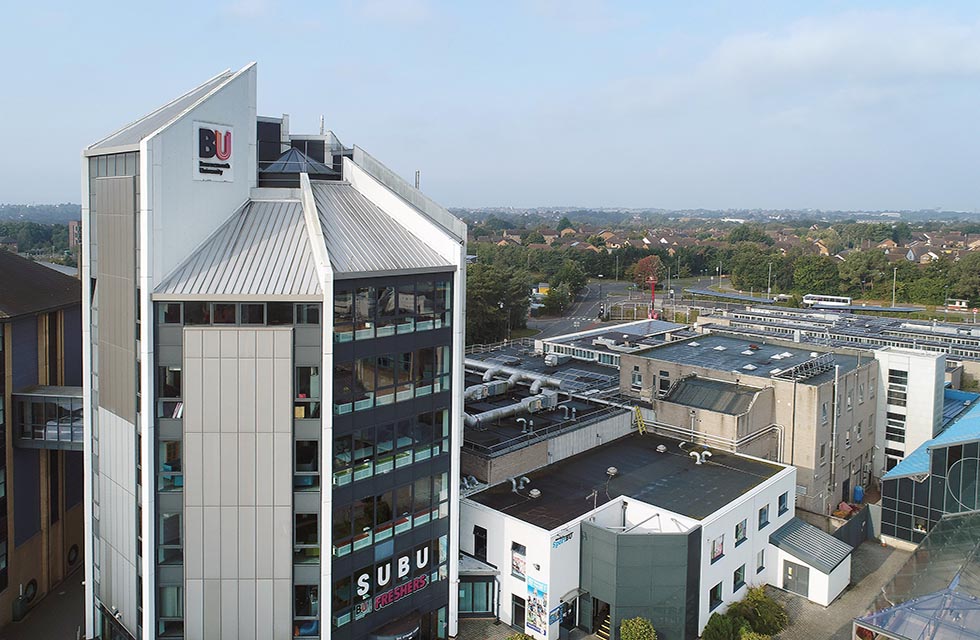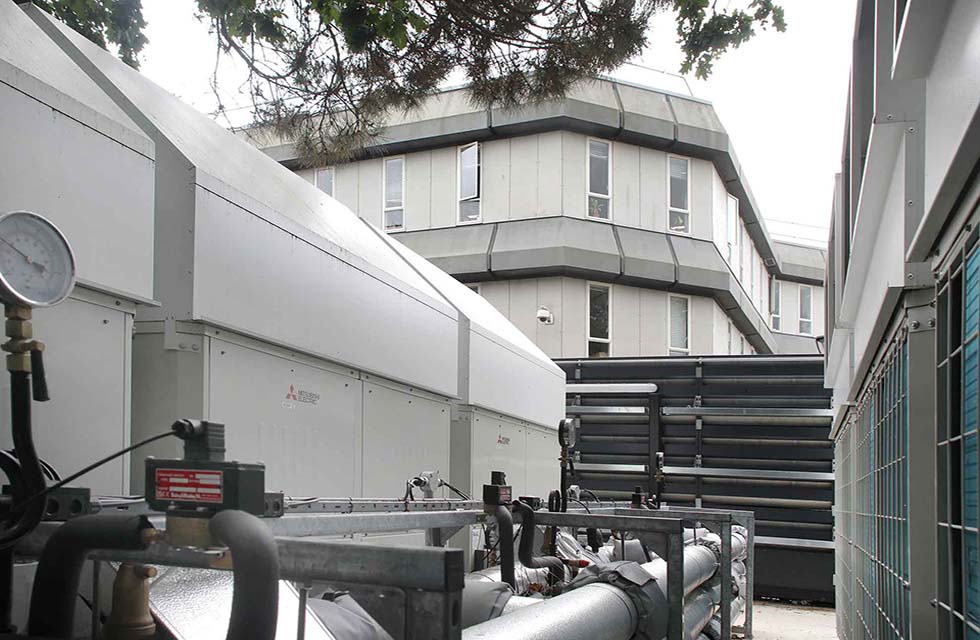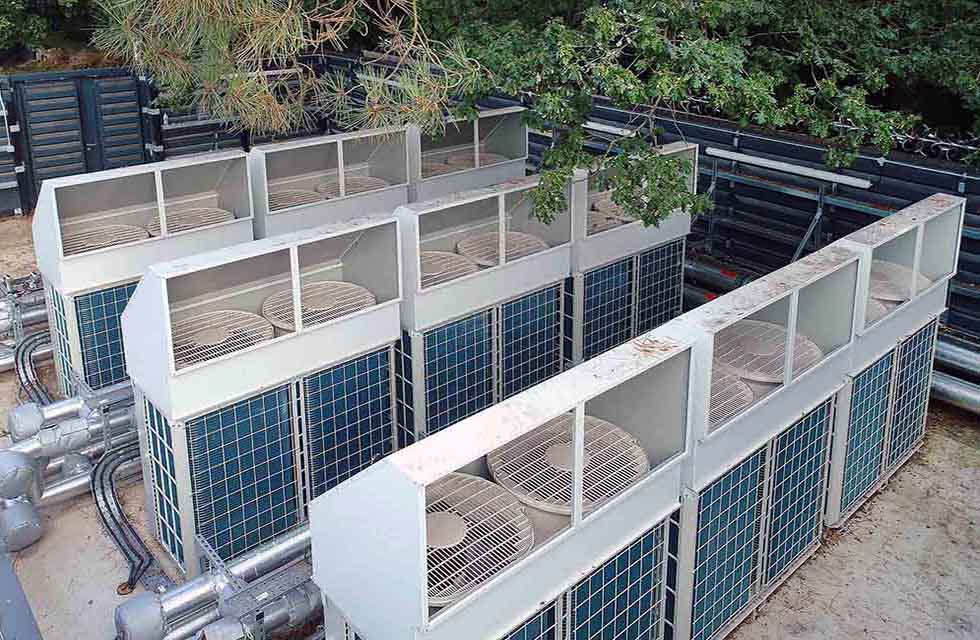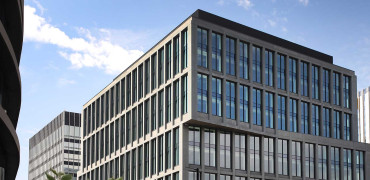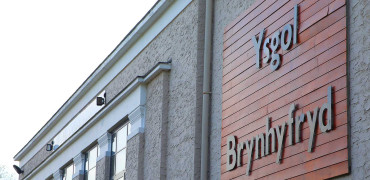Editor of Refurb Projects, Carole Titmuss looks at how the removal of gas boilers is helping Bournemouth University and its decarbonisation plans.
The replacement of gas boilers with air source heat pumps is helping Bournemouth University in its aim of decarbonising heat across its extensive campus.
The university has 17,000 students and 2,000 staff. Its main site is at the Talbot Campus, with 14 academic buildings including Dorset House, home to the Doctoral College, which provides support to the postgraduate research community.
Previously heated with three commercial gas boilers that had reached end of life, the building was identified as one to focus on as part of a decarbonisation plan.
“We were successful in being awarded Low Carbon Skills Funding to create a heat decarbonisation plan for the Talbot Campus,” explained Lois Betts, Sustainability Manager for Bournemouth University. “Our plan aims to achieve a 50% reduction across all scopes of emissions by 2030-31 against a baseline of 2018-19.”
The latest CAHV heat pump uses R454C refrigerant with a lower Global Warming Potential
High temperature hot water
Nine CAHV-R air source heat pumps from Mitsubishi Electric have been installed in a special compound to replace the gas boilers. The CAHV-R units can deliver domestic hot water up to 70°C, which will be used for both heating and hot water throughout Dorset House.
“If we’d chosen a low temperature heat pump, we would have had to replace all the pipework and radiators throughout an operational building which was just not feasible,” commented Dave Archer, Energy manager for the University. “We needed to find a cost-effective solution that could achieve those high temperatures without needing all that extra work to be done.”
A single CAHV-R unit can deliver up to 40kW of capacity and each unit can work in a cascade system to reach higher capacities of up to 640kW. This makes the CAHV-R heat pump suitable for a wide range of applications.
For Dorset House, it also means that the multi-unit system can deliver capacities to match the different load requirements of the building throughout the year, and can also rotate operation between units, to help extend equipment life.
Keeping the radiators
The installation of the heat pumps and a dedicated acoustic enclosure was undertaken by mechanical and electrical contractors, Lowe & Oliver Ltd, who’s Head Office is in Oxford, with offices in Eastleigh and Cheltenham but work across the Central and South of the country.
“We were responsible for the full installation of the air source heat pumps to replace the existing boiler system, along with an acoustic enclosure,” explained Paul Tuson, Chairman of Lowe & Oliver. “We were also involved in the base work and electrics for the new cycle storehouse next door.”
The CAHV heat pump has been one of Mitsubishi Electric’s most popular commercial heating system since it’s entry on the market over a decade ago.
The latest version, the award-winning CAHV-R uses lower Global Warming Potential (GWP) R454C refrigerant, to deliver a robust, low carbon system for the provision of sanitary hot water and space heating.
“These heat pumps were chosen as they meant we didn’t have to upgrade any of the radiators inside the building and they give a high temperature on heat output inside Dorset House,” commented Aaron Holmes, Mechanical Project Manager for Lowe & Oliver Ltd. “We’ve had a good involvement with Mitsubishi over the last few years and are currently using heat pumps in about four or five of our projects as we speak.”
Top priority
Sustainability is a top priority for Bournemouth University as Sustainability Manager, Lois Betts explained: “We’re keen to create a campus environment that makes it easier for our students and staff to make the right choices for the environment and reduce their carbon footprint.”
For Energy Manager, Dave Archer, the next step in the University’s decarbonisation plan is to look at the other buildings and opportunities to reduce emissions.
A major part of that will involve monitoring the performance and the output of the Dorset House system to see how suitable the heat pumps system could be in other faculty buildings across the campus.
Carole Titmuss is Editor of Refurb Projects


